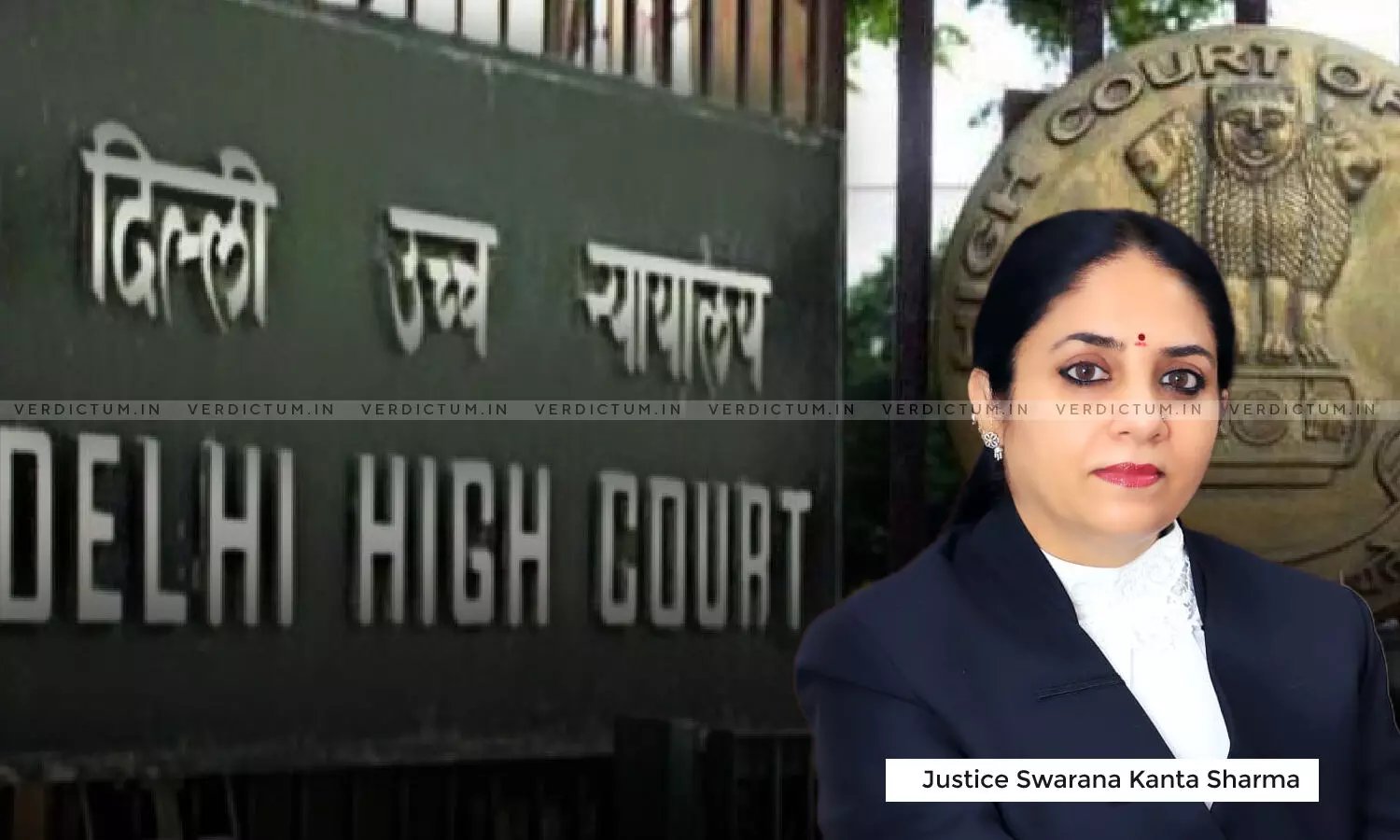
She Has Right To Be Known By Name Of Mother Who Brought Her In World: Delhi HC Allows Woman's Request To Correct Mother's Name In School Records
 |
|The Delhi High Court has allowed a woman to replace the name of her stepmother with the name of her biological mother in the school records.
The Court opined that to deny this right to her as a daughter would lead to denying her right to be known by the name of the mother who brought her into the world.
The Bench of Justice Swarana Kanta Sharma held, “However, a rigid application of the regulations in such a unique and personal circumstance would result in unfair denial of justice to her which may seem trivial to some, however, may mean the world to a daughter seeking to be recognized by the name of her biological mother. To deny this right to her as a daughter would lead to denying her right to be known by the name of the mother who brought her to the world…This Court has to grant her this relief since it is her right to be known by the name of her biological mother and the law in case it denies her this relief will be doing gross injustice to her, not as a member of the community but also as ana adult daughter, who still has that child in her who loves her mother and recognizes her as one who has given her the ability to stand on her feet and fight for herself.”
Advocate I.S. Dahiya appeared for the Petitioner, and Advocate Atul Kumar appeared for the Respondents.
A writ petition was filed by a daughter to have her biological mother’s name entered into the official records. Her quest for a professional career was allegedly hindered by the discrepancies in her educational documents, particularly her 10th-grade certificate issued by CBSE, where her name and her mother’s name remained incorrectly recorded. She wrote letters to Respondent No. 2, i.e. Dyal Singh Public School (‘School’), requesting it to rectify the errors in their records, especially to carry out the correction in the name of her mother. The School, however, did not take any action in this regard. The petitioner had also approached Respondent No. 1, i.e. ‘CBSE’ twice, but her representations remained unanswered.
The Court opined that there was no dispute in the names of the petitioner’s biological mother and her biological father. The case arose from unfortunate circumstances surrounding the marital discord between the parents of the petitioner, which led to their divorce when the petitioner was just one year old. Following the separation, the petitioner’s custody was taken by her father, leaving
her separated from her biological mother during her childhood. She was allegedly ill-treated by her biological father and stepmother, and she ultimately was able to reunite with and be raised by her biological mother.
The Court noted that every case cannot be decided solely on the rigid construction of law without considering the underlying facts and the reasons that bring the petitioner before this Court.
The Court observed, “While the letter of the law provides a necessary framework for justice, the true essence of fairness often lies in examining the specific circumstances of each case. Courts exist not only to apply laws but to ensure that justice is done in a way that is responsive to the particular needs of the litigant who is not a file but a human being…Members of the community often approach the Courts seeking relief based on unique and sometimes deeply personal struggles, and these facts cannot be overlooked in the name of rigid legal formalism…It is the duty of the Court to balance the application of law with compassion, understanding, and a thorough examination of the facts, so that justice serves not only the law but also the people for whom the law was created.”
The Court opined that when the doors of rigid interpretations close, it is the courts’ discretion that opens windows of hope for those left remedy-less. It added that denying this relief would burden her with unnecessary psychological stress, forcing her to live with the name of her stepmother, who does not reflect the truth of her familial and emotional life.
“This Court questions as to where was the fault of this child, who was in secondary school, when her father unilaterally changed the name of her biological mother and substituted it with that of her stepmother. At such a tender age, the petitioner had no control over the decisions made by her parents, especially during a tumultuous period of familial discord. The child was navigating her own challenges, while the adults in her life made choices that would have profound implications on her identity and sense of belonging.”, the Court held.
The Court concluded that the petitioner’s request for the correction of her biological mother’s name in the Class 10th certificate issued by CBSE was both reasonable and just. Further, the Court was of the opinion that the petitioner’s request to change her name from “Shweta Sangwan” to “Shweta”, i.e. to remove her surname, is also justified.
Accordingly, the Court allowed the writ petition partly, and the CBSE was directed to correct the Petitioner’s name.
Cause Title: Shweta v. Central Board Of Secondary Education & Anr. (Neutral Citation:2024:DHC:7349)
Appearances:
Petitioner: Advocates I.S. Dahiya, Ankit Dedha, Priyanka S Aneja and Anil Kumar
Respondents: Advocates Atul Kumar, Aditi Gupta, Sameer Singh and Neelam Singh